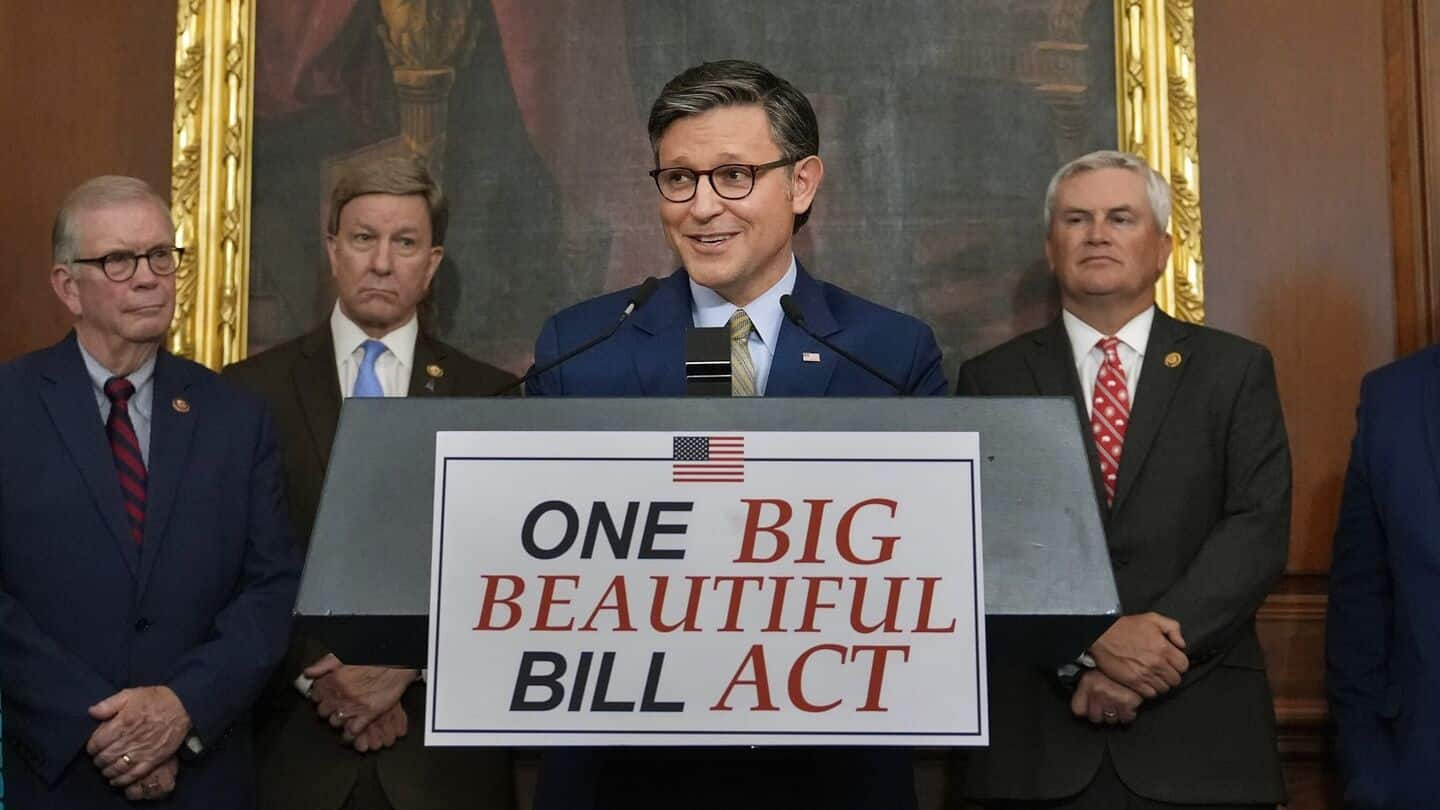
US House passes Trump's 'big, beautiful bill'; what's in it
What's the story
The United States House of Representatives has passed a major bill that embodies President Donald Trump's legislative agenda. The "One Big Beautiful Bill Act" was passed in a 215-214 vote after an all-night session. The legislation extends tax cuts from Trump's first term, increases funding for border, deportation, and national defense priorities, reforms Medicaid with stricter work requirements, rolls back green energy tax incentives, and raises the debt limit by $4 trillion.
Legislative victory
Speaker Johnson hails passage as 'big day'
It also temporarily eliminates taxes on overtime and tips, which were significant pledges Trump made throughout his successful 2024 presidential campaign. House Speaker Mike Johnson (R-La.) called the passage a "big day" and said it was "generational, truly nation-shaping legislation." Trump himself played a significant role in passing the bill, including an 11th-hour White House meeting on Wednesday to fend off a revolt by the conservative House Freedom Caucus, according to a person briefed on the discussion.
Opposition response
Democrats criticize bill's impact on low-income individuals
After the bill's passage, he praised Speaker Johnson, calling it "arguably the most significant piece of Legislation that will ever be signed!" Democrats have slammed the legislation, warning it would hurt low-income Americans while benefiting the wealthy. House Minority Leader Hakeem Jeffries (D-N.Y.) called it a "GOP Tax Scam" that takes away healthcare and food assistance to give tax cuts to the rich. The Congressional Budget Office (CBO) analysis supports this claim, showing poorer Americans losing resources under the bill.
Senate amendments
Senate plans changes to bill, setting stage for conflict
The bill, however, comes at a significant cost. It is expected to add $5.2 trillion (£3.9 trillion) to US debt and increase the budget deficit by around $600 billion in the coming fiscal year. The Senate must also adopt the bill and may make some modifications along the process. If lawmakers agree, it will return to the House for another high-stakes vote that could go wrong. Republican leaders hope to enact the package by July 4th.
Compromise reached
House Freedom Caucus and centrist Republicans secure concessions
The House Freedom Caucus and centrist Republicans from high-tax blue states were key players in negotiating concessions on the legislation. They pushed for faster implementation of Medicaid work requirements and higher state and local tax deduction caps. A compromise was reached with a $40,000 deduction cap. The road to Thursday's vote was dramatic, with two lawmakers missing due to late arrivals or oversleeping. Republicans Thomas Massie of Kentucky and Warren Davidson of Ohio joined Democrats in voting against the bill.